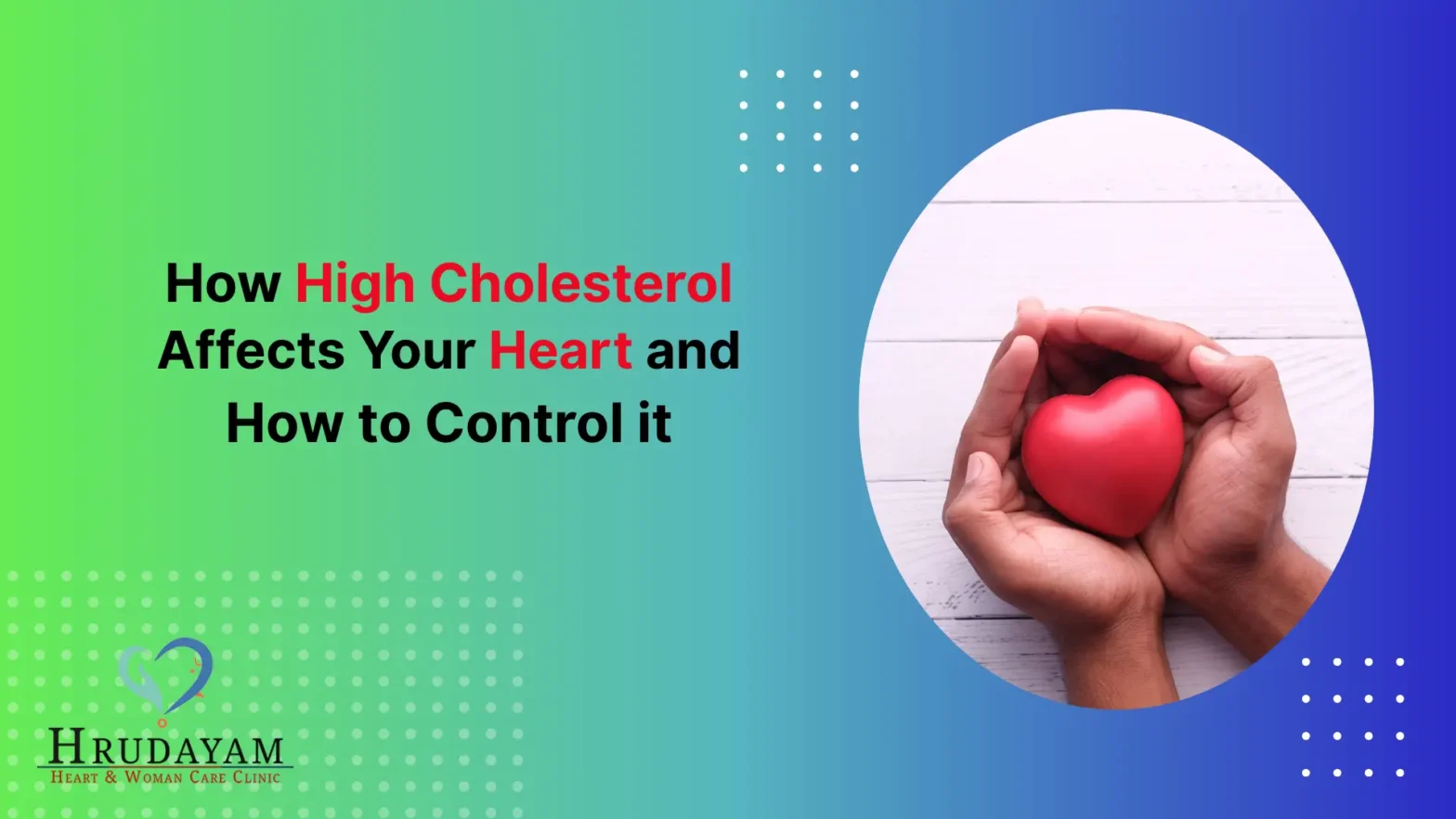Your heart is one of the most worked parts of your body. However, high cholesterol makes it difficult for it to function properly. Too much cholesterol can clog your bloodstream and lead to heart issues. You may not notice anything at first, but it gradually damages your blood vessels and heart. The good news is that it can be handled with minor lifestyle alterations. Being aware of how to reduce cholesterol is the first step towards having a healthy heart and living longer.
What Is Cholesterol?
Cholesterol is a fat that is present in your blood. Your body requires some cholesterol to produce hormones, vitamin D, and to digest food. However, if you have excess, it will accumulate within your arteries. This accumulation will restrict the flow of blood, resulting in heart disease or stroke. Cholesterol is derived from the food you consume and is also produced by your liver.
Types of Cholesterol
There are two principal forms of cholesterol in your body.
- Low-Density Lipoprotein (LDL): It’s also referred to as “bad cholesterol” since it attaches to your artery walls and narrows blood vessels. High levels of LDL may raise your risk for a heart attack and stroke.
- High-Density Lipoprotein (HDL): It’s the “good cholesterol” that cleanses excess cholesterol from your blood. High HDL levels protect your heart by taking the bad cholesterol away.
Causes of High Cholesterol
There are numerous reasons why high cholesterol may occur. Some result from lifestyle, while others result from family background or illness.
- Unhealthy Diet: Consuming excess fried foods, butter, red meat, and processed snacks increases levels of bad cholesterol. A low cholesterol diet of fruits, vegetables, and whole grains lowers it.
- Lack of Physical Activity: If you don’t move much, your body is unable to burn fat efficiently. Exercise regularly increases good cholesterol and decreases bad cholesterol.
- Obesity: Being overweight can raise LDL and decrease HDL. Losing small amounts of weight improves cholesterol levels.
- Smoking: Smoking hurts blood vessels and lowers good cholesterol. Stopping smoking rapidly improves your cardiovascular health.
- Genetics: You may get high cholesterol from your parents. This is known as familial hypercholesterolemia and might require medical intervention.
- Medical Conditions: Certain diseases, such as diabetes, thyroid disease, or kidney disease, can increase cholesterol. Early detection and treatment of these conditions are possible through regular health check-ups.
Symptoms of High Cholesterol
High cholesterol most often has no noticeable symptoms initially. It silently hurts your heart and blood vessels slowly.
- Chest Pain (Angina): You might experience a feeling of tightness or pressure in your chest when your arteries are clogged.
- Shortness of Breath: You might feel short of breath while engaging in easy things such as walking or going up stairs.
- Numbness or Tingling: Numbness, particularly in hands or feet, might be caused by poor blood circulation.
- Fatigue and Weakness: Your body might become exhausted since your heart is unable to pump blood effectively.
- Dizziness: You might be dizzy or lightheaded because of inadequate blood circulation.
- Leg Pain: Discomfort or cramps in your legs during walking might be caused by clogged arteries.
- Impotence: Men can also have erection issues when blood flow is disrupted by cholesterol accumulation.
How Is Cholesterol Measured?
Cholesterol is tested with a quick blood test called a lipid profile. It tests for total cholesterol, LDL, HDL, and triglycerides (another fat). It is typically done after fasting for 9–12 hours. A healthy level of total cholesterol should be below 200 mg/dL. Your physician can interpret your results and advise you on how to control cholesterol if it is high. Testing regularly allows you to monitor your progress and keep your heart protected.
Solutions to High Cholesterol
You can control and even lower high cholesterol with simple changes in your daily routine.
- Diet Control: Increase fruits, vegetables, nuts, oats, and fish in your diet. Reduce fried, oily, and sweet foods. A diet low in cholesterol lowers bad cholesterol and keeps your heart healthy.
- Exercise Regularly: Take a walk, ride a bicycle, or swim for a minimum of 30 minutes daily. Exercise regularly is one of the most effective methods to lower cholesterol naturally.
- Take Prescribed Medicines: If your doctor prescribes medicines, use them as advised. They reduce bad cholesterol and avert heart disease.
- Do Not Smoke and Drink in Moderation: Stop smoking and use alcohol less. Both poison your heart and raise bad cholesterol.
- Regular Checkups: See your doctor often. Regular checkups can catch changes early and help you act in time.
Conclusion
High cholesterol may be frightening, but you can keep it under control by making intelligent choices. Eat well, exercise regularly, and monitor your health. Even small changes, such as substituting fruit for chips or walking instead of a lift, can have a major impact. Learning how to manage cholesterol isn’t about cutting out all the foods you enjoy. It’s about living a healthy balance that keeps your heart healthy and your life joyful. Take care of your heart — it takes care of you every day.
FAQs
Yes, children can have high cholesterol if it runs in the family or if they consume a lot of junk food. Early care prevents trouble later.
Adults should get it checked every 4–6 years, but those with heart risks might need to get it checked more often.
Yes. With medication, diet, and exercise, you can reduce cholesterol and help heart health.
Not. But when it influences blood flow, it can cause dizziness or fatigue.
Yes. Women’s cholesterol levels may fluctuate with pregnancy or menopause, so it is helpful to get routine tests

